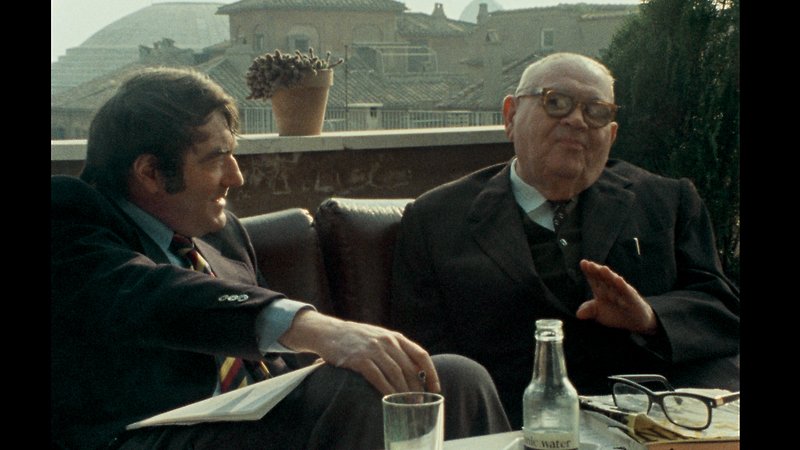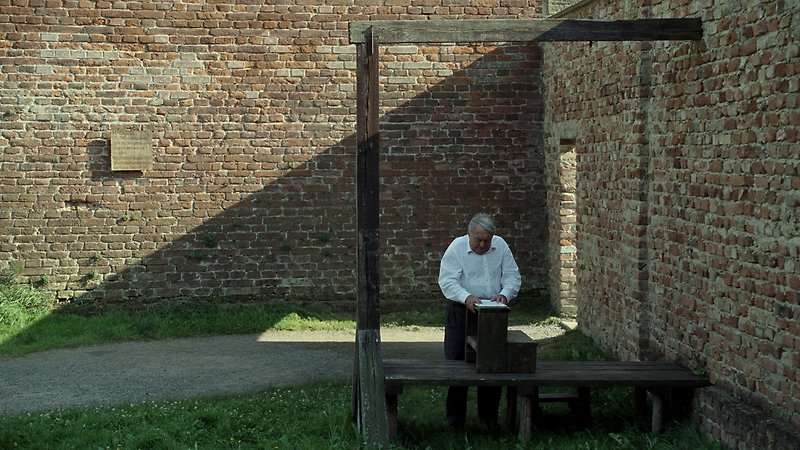The Nazi-appointed Jewish leader who collaborated with the Germans and survived the Theresienstadt concentration camp defends his actions with compelling verve in Claude Lanzmann’s gripping new film, built around a 1975 interview.


An enthralling portrait of a man – an exceptionally brilliant and articulate man – who personified the courage, complexity and moral ambiguity of his tortured time.
Screened as part of NZIFF 2014
The Last of the Unjust 2013
Le dernier des injustes
Claude Lanzmann, director of Shoah, cinema’s implacable chronicler of the Holocaust, has fashioned a gripping ethical debate around his 1975 interrogation of Benjamin Murmelstein, the Nazi-appointed Jewish leader at Theresienstadt. This was the concentration camp the Germans presented to the world as a model Jewish settlement.
“Judging can become a form of lazy evasion, a way of closing the book on the tricky realities of failure, guilt and complicity... Those complexities lie at the heart of the new documentary by Claude Lanzmann. But where Shoah is dauntingly austere, The Last of the Unjust has a vivid immediacy. It centers on one man, the late Benjamin Murmelstein, a Viennese rabbi reviled for his complicity with the Nazis... Faced with Lanzmann’s righteousness and billowing Gauloises smoke, the cunning 70-year-old Murmelstein doesn’t flinch. He justifies himself with such irony, cocky verve and memory for detail that we begin to see things from his point of view.” — John Powers, NPR
“The subject of The Last of the Unjust is life. The miracle that it conjures is that of survival.” — Richard Brody, New Yorker